How to Choose the Best Entry Door Hardware for Your Home
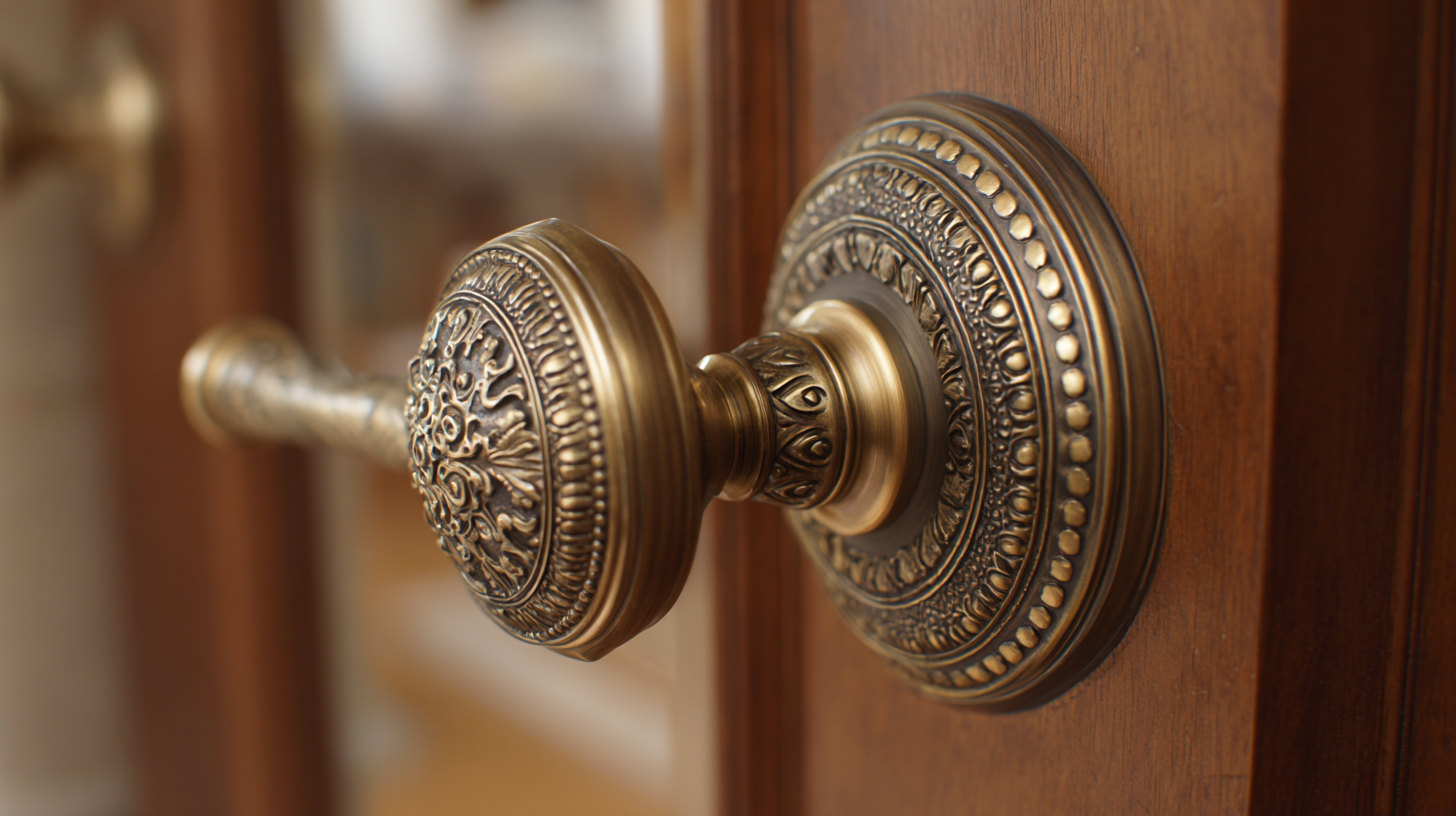 Selecting the right entry door hardware is crucial for both security and aesthetic appeal, as it serves as the first line of defense for any home. According to the National Association of Home Builders, nearly 75% of home break-ins are facilitated by unlocked or weak entry points, emphasizing the importance of robust door hardware. With a variety of options available—from traditional locks to smart technology—homeowners face the challenge of choosing the best entry door hardware that meets their specific needs. Additionally, a recent survey by the Home Improvement Research Institute highlighted that nearly 60% of homeowners prioritize both functionality and style when making such decisions. With this information in mind, understanding the features, materials, and security ratings of entry door hardware can empower you to make an informed choice that enhances your home’s safety and curb appeal.
Selecting the right entry door hardware is crucial for both security and aesthetic appeal, as it serves as the first line of defense for any home. According to the National Association of Home Builders, nearly 75% of home break-ins are facilitated by unlocked or weak entry points, emphasizing the importance of robust door hardware. With a variety of options available—from traditional locks to smart technology—homeowners face the challenge of choosing the best entry door hardware that meets their specific needs. Additionally, a recent survey by the Home Improvement Research Institute highlighted that nearly 60% of homeowners prioritize both functionality and style when making such decisions. With this information in mind, understanding the features, materials, and security ratings of entry door hardware can empower you to make an informed choice that enhances your home’s safety and curb appeal.
Understanding Different Types of Entry Door Hardware Available
When selecting entry door hardware for your home, it's essential to understand the various types available to ensure security, aesthetics, and functionality. The most common categories include door knobs, lever handles, deadbolts, and smart locks.
Door knobs offer a classic look, while lever handles provide a modern touch and are often easier to operate, especially for those with limited mobility.
Deadbolts, both single and double-cylinder models, are crucial for enhanced security, as they provide an extra layer of protection against forced entry. For those looking to incorporate technology, smart locks present a convenient option, allowing homeowners to control access via smartphones or keypads.
It’s important to consider the compatibility of each hardware type with your door's design and structure, along with your personal preferences regarding style and security features. Ultimately, choosing the right entry door hardware involves understanding these various types and how they can complement the overall look and safety of your home.
Key Features to Consider When Selecting Entry Door Hardware
When selecting entry door hardware, several key features should be taken into account to ensure both
security and aesthetic appeal. First, the material of the hardware is crucial. According to the
American Hardware Manufacturers Association, stainless steel and
brass are popular choices due to their durability and resistance to corrosion.
High-quality materials not only enhance the longevity of the hardware but also contribute
to the overall security of the home. A report from the National Association of Home Builders states that homes with high-grade door hardware
reported a 30% increase in perceived security by homeowners.
Another essential consideration is the locking mechanism. Deadbolts are highly recommended for their strength and resistance to forced
entry; in fact, homes with a single-cylinder deadbolt can withstand an attempted break-in significantly better than those without any advanced
locking system. Research from the Electronic Security Association indicates that homes equipped with deadbolts are 15%
less likely to be targeted by burglars. In addition to security features, the style and finish of the hardware should complement the
home's exterior design, providing a harmonious look that also reflects the homeowner's personal style.
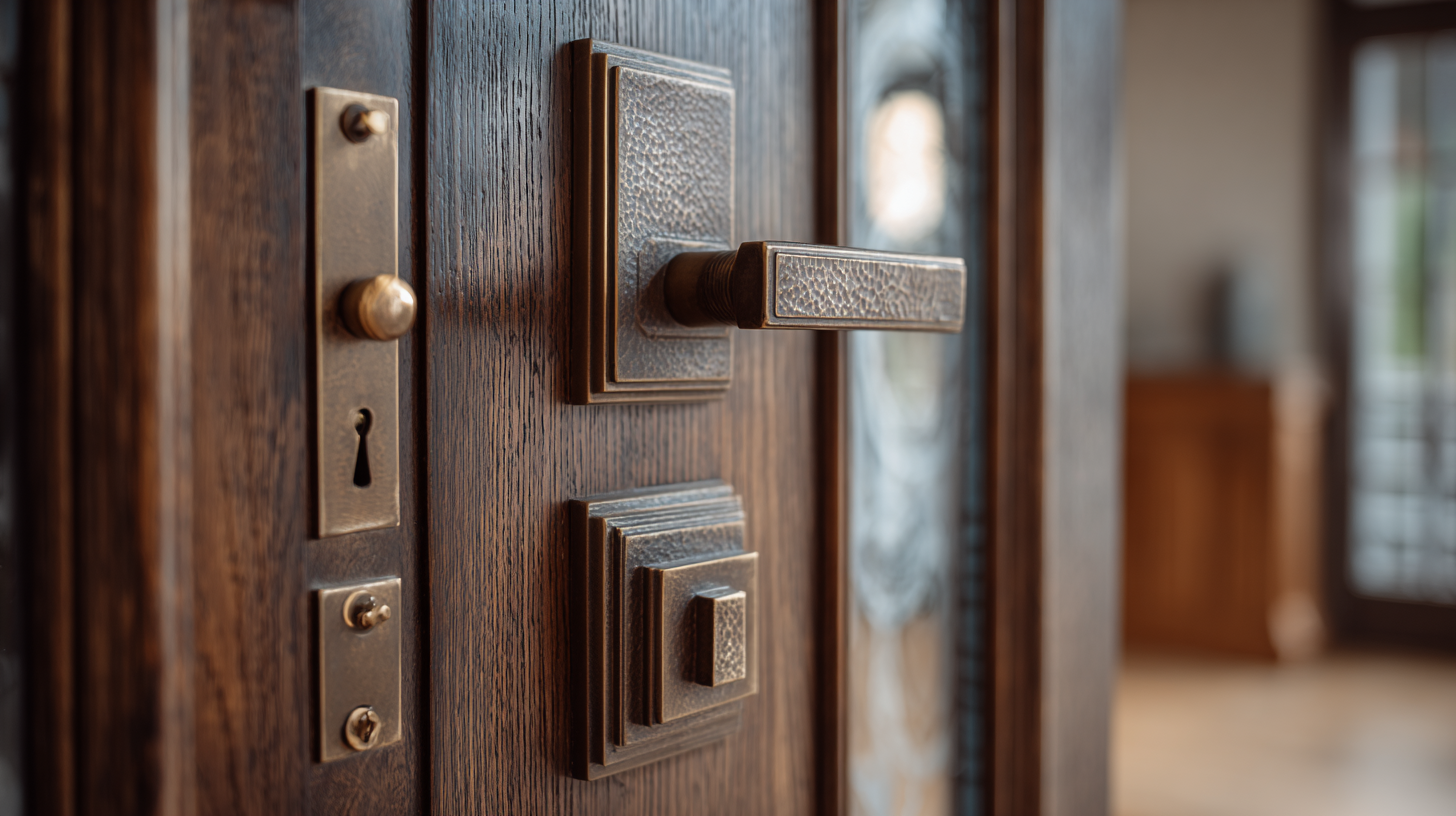
Comparing Material Durability for Long-Lasting Door Hardware
When choosing entry door hardware, material durability plays a crucial role in ensuring long-lasting performance. According to a report from the Door Hardware Institute, mechanical locks made from solid brass can offer significant resistance to wear and corrosion, making them ideal for exterior use. In contrast, stainless steel options are praised for their strength and resistance to rust, especially in coastal areas where salt exposure can deteriorate lesser materials.
Tips: When selecting your entry door hardware, consider the climate of your location. If you live in a humid environment, opt for hardware with weather-resistant finishes, such as those treated with a powder coat. Additionally, always choose hardware that meets ANSI/BHMA standards, which guarantees a certain level of durability and security.
Furthermore, manufacturers like Schlage and Kwikset report that multi-point locking systems can enhance durability by distributing pressure along the door frame, effectively prolonging the life of both the lock and the door itself. Investing in high-quality materials now can save you from frequent replacements, ensuring your entryway remains both secure and aesthetically pleasing for years to come.
Aesthetic Considerations: Matching Hardware with Your Home's Style
When selecting entry door hardware, aesthetic considerations are crucial to ensure it complements your home's overall design.
According to a report by the American Institute of Architects, nearly 80% of homeowners believe that curb appeal significantly affects property value, underscoring the importance of choice in entryway features, including hardware.
For instance, a sleek, modern handle can enhance contemporary home designs, while ornate, vintage-style knobs may be ideal for traditional homes.
Additionally, color and finish play a significant role in harmonizing door hardware with the exterior.
A study from HomeAdvisor shows that homes with cohesive color schemes can see a return on investment (ROI) of up to 75% when it comes time to sell.
Choosing hardware that aligns with your home’s palette—be it through matte black, polished brass, or brushed nickel—can elevate the entrance's aesthetic appeal.
By considering your home's style and selecting hardware that enhances that vision, you not only create a welcoming entry but also boost your property’s marketability.
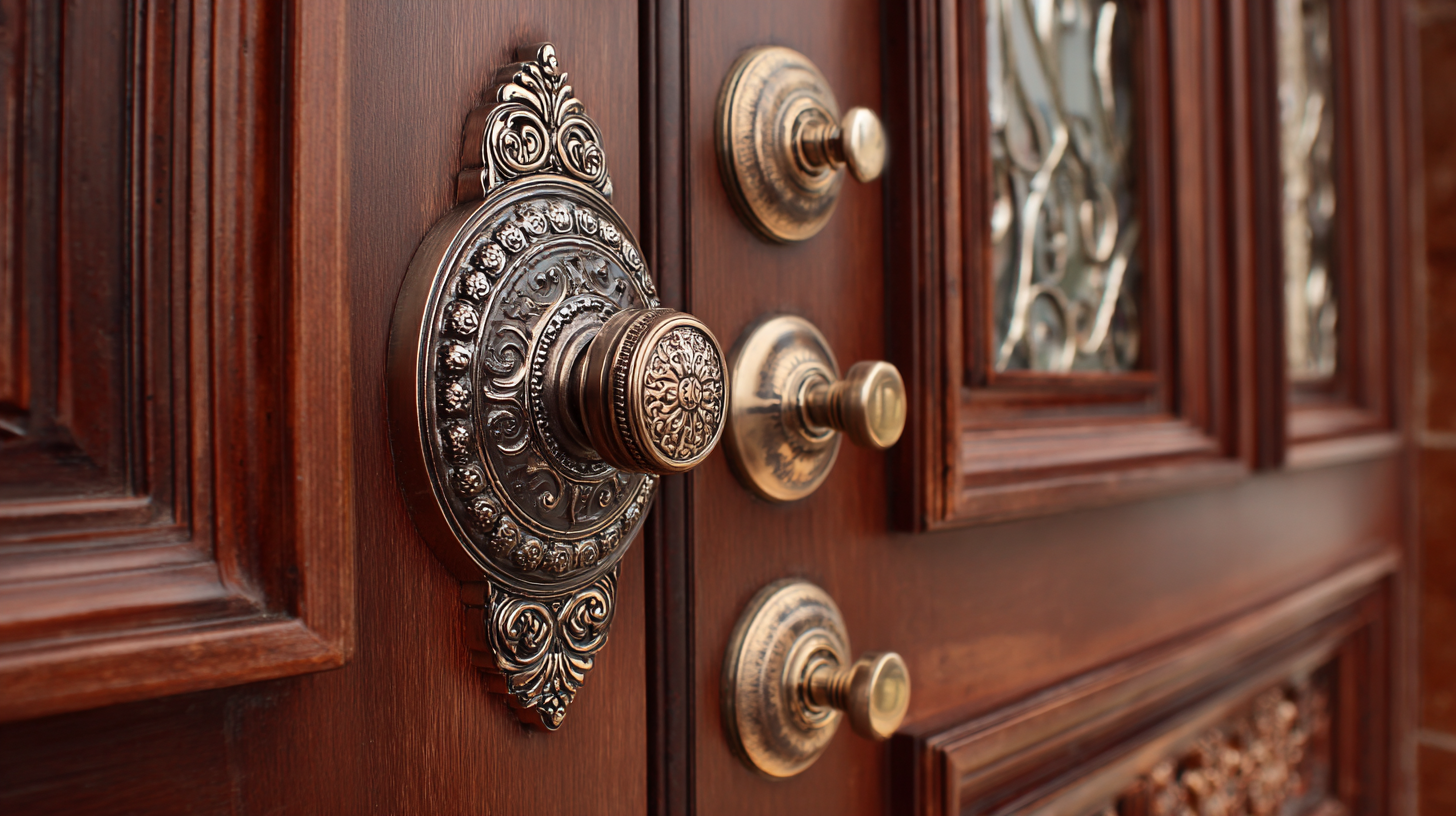
Security Enhancements: Choosing the Right Locking Mechanisms
When selecting entry door hardware, one of the most critical factors to consider is the security enhancements provided by various locking mechanisms. According to the National Crime Prevention Association, homes with secure locking systems are 300% less likely to be broken into. Therefore, investing in high-quality locks should be a top priority for homeowners seeking peace of mind.
Deadbolt locks stand out as one of the most effective locking mechanisms, often recommended by security experts. A report from the Electronic Security Association highlights that a single deadbolt can significantly deter intruders, especially when paired with a solid core door. Additionally, smart locks, which have gained popularity in recent years, offer convenience and enhanced security features. A study by Parks Associates found that approximately 25% of U.S. households plan to install smart locks, indicating a growing trend towards electronic and remote locking solutions that provide real-time alerts and monitoring capabilities.
Incorporating features such as anti-drill plates and reinforced strike plates can further bolster security. As per the latest data from the Home Safety Foundation, enhanced locking mechanisms contribute to a home’s overall security profile, making it essential for homeowners to invest in reliable door hardware to protect their homes effectively.
How to Choose the Best Entry Door Hardware for Your Home
| Lock Type | Security Level | Material | Price Range | Recommended Use |
|---|---|---|---|---|
| Deadbolt | High | Steel/Brass | $30 - $150 | Main Entry Doors |
| Smart Lock | Medium to High | Metal/Plastic | $100 - $300 | Tech-Savvy Homes |
| Knob Lock | Low to Medium | Brass/Zinc | $20 - $75 | Interior Doors |
| Lever Handle Lock | Medium | Aluminum/Stainless Steel | $30 - $100 | Accessible Entrances |
| Mortise Lock | High | Steel/Brass | $100 - $500 | Commercial Properties |
Related Posts
-
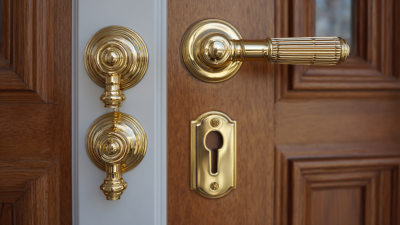
How to Choose Entry Door Hardware That Enhances Security and Style
-
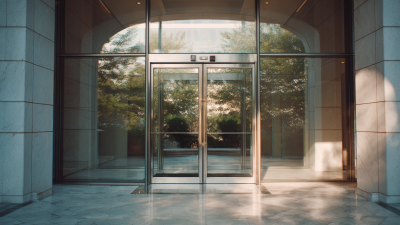
7 Best Benefits of Installing Tempered Glass Doors in Your Home
-

7 Best Door Pulls That Will Elevate Your Home Decor
-

5 Best Door Pulls to Elevate Your Home Aesthetic
-
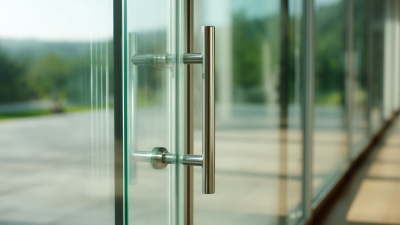
7 Essential Tips for Choosing the Best Sliding Glass Door Handles
-
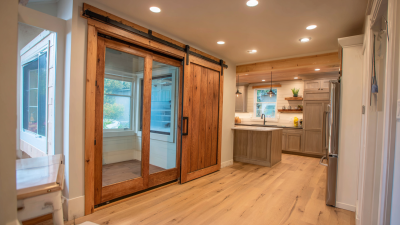
What is the Innovation Behind Sliding Door Systems
